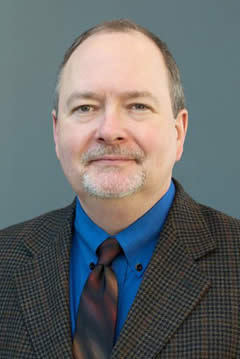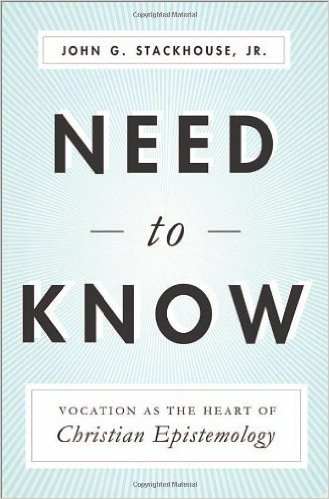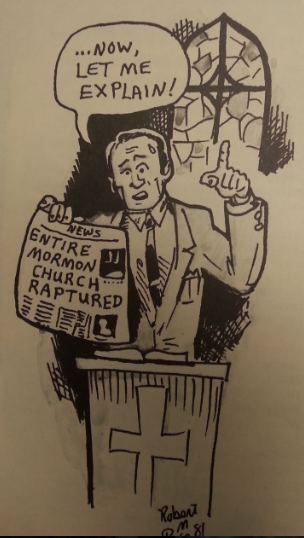Randal Rauser's Blog, page 161
January 25, 2016
Sin Junkies: addiction, punishment, and the new problem of hell
In December, 2015 America’s new drug czar, Michael Botticelli, gave a revealing interview with 60 Minutes’ Scott Pelley. The interview included this exchange:
Scott Pelley: Are you saying that the way we have waged the war on drugs for more than 40 years has been all wrong?
Michael Botticelli: It has been all wrong. Blunt force didn’t knock out the drug epidemic. 21 million Americans are addicted to drugs or alcohol. And half of all federal inmates are in for drug crimes. We can’t arrest and incarcerate addiction out of people. Not only do I think it’s really inhumane, but it’s ineffective and it cost us billions upon billions of dollars to keep doing this.
This is a game changer in the war on drugs, a move from viewing drug addition as a crime to be punished to viewing it as an illness to be treated.
Moreover, it does not take a lot of imagination to envision a broader application of Botticelli’s analysis providing a rather incisive critique to the predominant Christian conception of hell as eternal conscious torment (ECT). On that traditional view, God resurrects the reprobate to an eternity of punitive torture.
The standard objections to ECT are well known: the punishment is disproportionate to the crime; it’s wrong to torture people. But Botticelli offers the elements of another objection. If human beings are addicted to sin in a way that parallels a junkie’s addiction to drugs, then just as it is wrong to punish the addict so it is wrong to punish the sinner.
Of course, one could reason in the other direction as well. In other words, one could conclude that it is right to inflict punitive punishment on the person addicted to sin. From that it follows that it is likewise right to punish the addict addicted to drugs.
However, Botticelli offers reasons for his paradigm shift above and beyond the undeniable fact that the war on drugs has been a colossal failure:
Michael Botticelli: We’ve learned addiction is a brain disease. This is not a moral failing. This is not about bad people who are choosing to continue to use drugs because they lack willpower. You know, we don’t expect people with cancer just to stop having cancer.
Scott Pelley: Aren’t they doing it to themselves? Isn’t a heroin addict making that choice?
Michael Botticelli: Of course not. You know, the hallmark of addiction is that it changes your brain chemistry. It actually affects that part of your brain that’s responsible for judgment.
Once again, if Botticelli is right, and if that which is true of drug addiction specifically is true of sin addiction generally, then it is as wrong to subject the sin addict to punitive punishment as surely as it is wrong to subject the drug addict to punitive punishment.
In that case, we can turn to the next question: is Botticelli right?
January 23, 2016
Notes on My Devil’s Advocate Debate with Michael Ruse
My Devil’s Advocate Unbelievable Debate with Michael Ruse is now available online. You can listen to it here. I wrote out some statements in advance, but unfortunately given the time constraints (the clock moves way faster on radio; it’s a proven scientific fact!; I think it has something to do with relativity theory) I had to toss most of it. In particular, on the fly I had to fold my argument from evil into my argument from cosmic indifference. Too bad. I had a good argument from evil.
As the careful listener will hear (or as you all will hear since I’m pointing it out), my first argument against Christianity is laid out as a formal argument with premises in support of the conclusion that Yahweh is not God. By contrast, I don’t offer a formal argument to support my defense of cosmic indifference. Was that an oversight? Did I run out of time?
No. There’s an important reason for that. The fact is that I don’t find any of the formal arguments for the non-existence of God based on evil or indifference to be persuasive. But that doesn’t mean there’s nothing more to be said. As we navigate the world, we all form (reasonable) beliefs based on the way things seem to us.
So consider, for example, the old solipsist debate. Smith may have no formal argument that persuades him of the falsity of solipsism. But as he reflects on the solipsistic interpretation of reality over-against the non-solipsistic interpretation, he finds himself persuaded of the latter. With that, he joins David Hume in an evening of backgammon and merriment with the friends that he is now persuaded actually exist.
I pursued a similar method in my argument from cosmic indifference (rushed though it may have been). The argument consisted of an evocative description of world history which seems more plausibly interpreted in accord with atheism rather than theism.
January 22, 2016
The Ongoing Trials of the Minister Who Was an Atheist
A few months ago I wrote an article on the case of Gretta Vosper, a United Church minister who is an avowed atheist. The United Church of Canada, formed in 1925, has long been known as the bastion of mainline Protestant liberalism. But you might think that atheism is a bit much, even for the United Church. A few days ago CBC Radio’s The Current broadcast a twenty minute documentary on Vosper’s case which you can listen to here.
What most struck me about the documentary is how Vosper, under the aegis of inclusivity, marginalized orthodox Christians within her own congregation. (In this case, I’m defining “orthodox” very modestly as believing that God exists and is uniquely revealed in Jesus Christ.) For example, Vosper recalls how she had decided that the Lord’s Prayer was irrelevant and so she began prefacing her public recitation of it with this pandering qualification:
“I would introduce it and invite people for whom the words had meaning to say them with me and then I started to introduce it saying, ‘Those for whom these words have meaning, I invite you to say them together, and those for whom they do not I invite you to think of you know, something that’s important to you.'”
Extraordinary.
Imagine a leader of a local chapter of PETA (People for the Ethical Treatment of Animals) who stands up to introduce PETA’s plans to oppose the upcoming slaughter of baby harp seals in eastern Canada, and he prefaces the report with this disclaimer:
“For those of you who care about baby seals, I’ll invite you to pay attention. The rest of you think of something that’s important to you.”
Unimaginable, right?
Now try to picture that a large portion of the group cared nothing for animal rights and only met together every month because they liked the PETA community. Even more unimaginable. And yet, that’s the absurdity of Gretta Vosper and her church. They’ve rejected the heart of Christian faith — incarnation, atonement, even theism — and have decided that they simply like meeting together. The PETA community that cares not for baby harp seals is a PETA community in name only. And the Christian community that cares not for Jesus Christ is Christian in name only.
To preface the words of Jesus with “Those for whom these words have meaning” isn’t broadminded inclusivity, it’s a slap in the face to the disciple who has gathered in this place precisely because the words of Jesus have meaning, and authority, and power.
A bit of good news: the documentary also features an irenic, thoughtful, and — so far as I can hear — orthodox United Church minister named Connie denBok whose interview begins with a refreshing if slightly apologetic disclaimer of her own: “We actually believe all that stuff…”
January 21, 2016
When Conservative Christianity Wore Aviators
 The other day some old (or “vintage”) copies of His, the (to me heretofore unknown) magazine of Intervarsity Christian Fellowship were left out at our seminary for anybody interested in documents from 1970s conservative Protestant Christianity.
The other day some old (or “vintage”) copies of His, the (to me heretofore unknown) magazine of Intervarsity Christian Fellowship were left out at our seminary for anybody interested in documents from 1970s conservative Protestant Christianity.
I was immediately taken by this cover for the November 1977 edition. A pair of mirror lens aviator glasses left on hot tarmac, glittering in the sun and reflecting back a canary yellow 1940 Ford Coupe and a candy apple red Ford T-Bucket.
Yet one more example of the simple fact that the 1970s achieved an apogee of style that has not been approached since, even when it comes to conservative Christian magazines.
January 20, 2016
The Act of Killing: A Review
 Pull the annals of the twentieth century off the shelf and you will find them dripping with the blood of countless victims of genocide. While Steven Pinker may be right that world history is progressively becoming less violent and more civil, that is little comfort to the victims of Hitler’s concentration camps, Cambodia’s killing fields, or Rwanda’s blood-spattered rolling hills.
Pull the annals of the twentieth century off the shelf and you will find them dripping with the blood of countless victims of genocide. While Steven Pinker may be right that world history is progressively becoming less violent and more civil, that is little comfort to the victims of Hitler’s concentration camps, Cambodia’s killing fields, or Rwanda’s blood-spattered rolling hills.
Add to that bloody count the half million souls butchered in Indonesia during the purging of alleged communists in 1965-66. (It’s a sorry fact that when one speaks of the genocide of Indonesia, the immediate follow-up question is, which one?)
In the wake of WW2 Nazi genocidaires fled Germany like cockroaches scurrying away from the light of an opening door. But in The Act of Killing we meet the perpetrators of Indonesia’s 1965-66 genocide proud of their crimes and anxious to receive further recognition for them. And directors Joshua Oppenheimer, Christine Cynn, and their anonymous Indonesian co-director, are anxious to oblige. They invite the genocidaires to act out their crimes as the cameras roll, apparently appealing to the basest of human instincts that are willing to pursue one’s fifteen minutes of fame even for the most inhumane of deeds.
The ensuing interviews are chock full of helpful tidbits. For example, you choke people with wire because the wire cuts into their flesh and speeds the killing with a minimum of unnecessary blood spatter. Add in jocular laughter and incessant mugging for the camera and throngs of average citizenry smiling in the background and, well, you get the picture.
The Act of Killing is an important film, but it sure as hell is not pleasant viewing. Viewers will likely experience a range of emotional responses from outrage to hatred to utter disbelief to resignation. So why watch it? Because these things happened, because people like that are in the world, and because — but for the circumstances of history — we could find ourselves the victim, the perpetrator, or one of the smiling crowd.
January 19, 2016
82. Is the Church Making Us Stupid? A conversation with John Stackhouse


John Stackhouse
“The scandal of the evangelical mind is that there is not much of an evangelical mind.” And so begins Mark Noll’s 1994 book The Scandal of the Evangelical Mind. It’s been twenty-two years since Noll shot that provocative salvo across the bow of conservative Christian subculture. So how are we doing now?
At first blush, the answer would appear to be … not much better. Evangelicals are still widely known for their endorsement of substandard niche cultural products in music and cinema, a faddish endorsement of the latest trends ranging from milquetoast spirituality to unbridled end times speculation, a truncated moral vision that rarely ventures far beyond hot button issues like abortion and homosexuality, an uncritical and unwavering support of the state of Israel, and a hair trigger response to anything that gives off the whiff of theological liberalism.
One thing we aren’t known for is our thinking. And so, if public perception provides a reliable guide, and by and large I think it does, then there still isn’t much of an evangelical mind.
So let me be blunt: is the church making us stupid? Does evangelical faith somehow require us to turn off our critical thinking skills? And if so, what can we do about it? Big questions, and in this episode of The Tentative Apologist Podcast I explore them in a conversation with Canadian theologian, historian, and public intellectual, John Stackhouse.

You need to read “Need to Know”.
Professor Stackhouse is currently the Samuel J. Mikolaski Professor of Religious Studies and Dean of Faculty Development at Crandall University in Moncton, N.B. Previously he taught at Regent College and the University of Manitoba. Professor Stackhouse is a highly sought after speaker and a popular columnist for Faith Today Magazine. He’s also the author of many books including Partners in Christ: A Conservative Case for Egalitarianism (InterVarsity, 2015), Need to Know: Vocation as the Heart of Christian Epistemology (Oxford, 2014), and Making the Best of It: Following Christ in the Real World (Oxford, 2011). You can visit him online at www.johnstackhouse.com.
But before we get started, let’s return for a moment to the opening quote from Mark Noll: the scandal of the evangelical mind is that there isn’t much of an evangelical mind. The silver lining is that “not much” is not the same as “none at all”. You see, there are scholars of evangelical conviction, many of whom are working at the highest echelons of their disciplines. But if that is the silver lining, the dark cloud is that much of the wider evangelical community remains oblivious to this kind of scholarship.
And that’s what I really appreciate about John Stackhouse. As a scholar and educator, he is committed to wide-ranging, integrative scholarship that bridges that gap whilst providing evangelicals with a stellar model for Christian thinking. Distilled down to its essence, the gospel may be simple. But a simple gospel doesn’t require simple minds.
January 17, 2016
You can dis the minorities, but don’t mess with Ted!
On Saturday night while speaking at an event in South Carolina, Donald Trump turned his criticism on Ted Cruz. He denounced Cruz for criticizing New Yorkers and their values. And he lampooned Cruz for failing to declare a 2012 loan from Goldman Sachs.
One can safely assume two things about Trump’s audience: first, they are largely Christian; and second, since they are at a Trump event, they were by and large not offended by all his previous affronts to various and sundry groups. But this — criticism directed at Ted Cruz — was apparently one step too far. And so many in the crowd responded by angrily booing Trump. Kind of makes me think of a new twist on an old poem. With apologies to Pastor Martin Niemoller:
First he denounced illegal immigrants, and I did not speak out — Because I was not an illegal immigrant.
Then he denounced high profile career women, and I did not speak out — Because I was not a high profile career woman.
Then he denounced handicapped people, and I did not speak out — Because I was not a handicapped person.
Then he denounced Muslims, and I did not speak out — Because I was not a Muslim.
Along the way he was also denouncing mainstream candidates for the GOP nomination for being “low energy” and having low poll numbers and being physically unattractive, and I did not speak out — Because I was not supporting a mainstream candidate.
Then he denounced Ted Cruz … and all hell broke loose.
January 16, 2016
Freethinking children? Not so much.
Today I came upon the following tweet courtesy of a retweet by Secular Outpost. (As a disclaimer, Secular Outpost does not consider a retweet an endorsement of the tweet. Nor, for that matter, do I.)
Meet Zea, the 7-year-old who stood up to a homophobic hate preacher this week by holding up a rainbow sign. pic.twitter.com/fYygt4d643
— Sam Kalidi (@samkalidi) July 1, 2015
I have two reactions to this tweet.
The first was contained in a tweet of my own (one which, I am guessing, will not be retweeted 3500+ times and liked 4000+ times):

My second point is not directly related to the tweet but is rather inspired by it. I have little doubt that many of those who approved of adults sending that unwitting child into that maelstrom would describe themselves as freethinkers. They’d be skeptical of “religion” and “religious indoctrination”. And they’d resonate with the moral censure that Richard Dawkins extends to parents who dare to raise their children to have religious beliefs:
“A child is not a Christian child, not a Muslim child, but a child of Christian parents or a child of Muslim parents. This latter nomenclature, by the way, would be an excellent piece of consciousness-raising for the children themselves. A child who is told she is a ‘child of Muslim parents’ will immediately realize that religion is something for her to choose -or reject- when she becomes old enough to do so.” (The God Delusion, 382)
And I can’t help but note the irony. Those same people who would decry a parent giving their child a cross to hold at a religious rally applaud the parent who gives their child a rainbow flag and then sends her to confront an angry religious ideologue.
Which leads me to think that many self-described “freethinkers” believe children should be free of all ideologies … except the ones that the freethinkers themselves happen to hold.
January 15, 2016
I just finished debating Michael Ruse and…
Gee, the title of this article just stole my opening line. Oh well, at the risk of redundancy, I did indeed just finish debating Michael Ruse. As I mentioned a couple days ago, this was planned as a sort of “devil’s advocate” debate in which Ruse, a world-famous atheist, would defend theism; meanwhile, I, a relatively obscure Christian theist, would defend atheism.
It was great fun, and as usual Justin Brierley did a bang on job hosting. There were some arguments, candid reflections, and a good deal of laughter. And that’s exactly the kind of thing we need to bridge the deep ideological divides (with associated rancor and suspicion) that tend to separate (Christian) theists from atheists.
As an aside, I was led to reflect further on the need for this kind of event this week after watching Obama’s state of the union address followed a couple days later (i.e. last night) by the latest Republican debate. Over and over again Republican candidates dismissed Obama as living in a “fantasy” world as they hammered home that things are now allegedly worse than ever in America. And I mused, how deep the divide between Democrats and Republicans! How differently they view the world and interpret the very same data! How much mutual suspicion and hostility accompanies these irreconcilable perspectives!
All that is to say, can you imagine if Ted Cruz and Bernie Sanders were to debate whilst defending their opponent’s platform? Now that would be interesting. In our day we need many more exchanges like the one we just recorded on “Unbelievable”.
So when can you hear it? Justin told us that this episode of “Unbelievable” will be broadcast on January 23rd. In the meantime, my thanks to Justin for agreeing to host and for Michael Ruse in providing a capable, irenic and committed defense of a religious perspective close to his childhood Quaker upbringing.
As for me, having been an atheist for an hour, I’m more than happy to be back in the familiar confines of Christian theism.
January 14, 2016
I Miss The Wittenburg Door
 I’ve long been a fan of clever satire and parody. So it’s no surprise that I’ve also long been a fan of that fledgling iconoclastic Christian institution, The Wittenburg Door (aka The Door). The Door was every bit as smart and funny as Mad and Cracked, but it devoted itself to lampooning cultural Christianity.
I’ve long been a fan of clever satire and parody. So it’s no surprise that I’ve also long been a fan of that fledgling iconoclastic Christian institution, The Wittenburg Door (aka The Door). The Door was every bit as smart and funny as Mad and Cracked, but it devoted itself to lampooning cultural Christianity.
Sadly, after many satisfying years of amusing, Onion-like social commentary, this venerable publication went dormant in 2008. But the other day one of my colleagues lent me a vintage 1981 copy and I was reminded how much I missed The Door.
As you can see, the issue capitalizes on the end-times fervor of the early eighties replete with a mashup of Hal Lindsey and Alfred E. Neuman.
As I began flipping through the pages, I laughed — audibly laughed — at the cartoon I included below.
By the way, take a look at the name of the cartoonist. “Robert M. Price”. I know of only one Robert M. Price who is also a cartoonist.
Fascinating!





